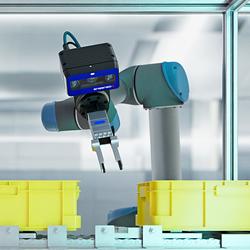Introducing the Alexa Prize: $2.5 Million to Advance Conversational Artificial Intelligence
-Registration is now open for universities to build a socialbot on Alexa and compete to win a $500,000 prize -An additional $1 million prize for a socialbot that achieves the grand challenge of conversing coherently and engagingly with humans for 20 minutes
SEATTLE--(BUSINESS WIRE)--(NASDAQ: AMZN)—Today, Amazon announced the Alexa Prize, an annual university competition dedicated to accelerating the field of conversational artificial intelligence (AI). The goal of the inaugural competition is to build a "socialbot" on Alexa that will converse with people about popular topics and news events. The team with the highest-performing socialbot will win a $500,000 prize. Additionally, a prize of $1 million will be awarded to the winning teams university if their socialbot achieves the grand challenge of conversing coherently and engagingly with humans for 20 minutes.
"Alexa, lets chat about (a topic, for example, baseball playoffs, celebrity gossip, scientific breakthroughs, etc.)."
Tweet this
Teams of university students can submit applications now and the contest will conclude at AWS re:invent in November 2017, where the winners will be announced. Up to ten teams will be sponsored by Amazon and receive a $100,000 stipend, Alexa-enabled devices, free AWS services, and support from the Alexa team.
Students will build their socialbots using the Alexa Skills Kit (ASK), which tens of thousands of developers are already using to build new skills on Alexa. Participants will have access to conversational topic categories and digital content from multiple sources, including The Washington Post, which has agreed to make its complete news feed and comments available to the students for non-commercial use. As part of the research and judging process, millions of Alexa customers will have the opportunity to converse with the socialbots on popular topics by saying, "Alexa, lets chat about (a topic, for example, baseball playoffs, celebrity gossip, scientific breakthroughs, etc.)." Following the conversation, Alexa users will give feedback on the experience to provide valuable input to the students for improving their socialbots. The feedback from Alexa users will also be used to help select the best socialbots to advance to the final, live judging phase.
This challenge will advance several areas of conversational AI including knowledge acquisition, natural language understanding, natural language generation, context modeling, commonsense reasoning, and dialog planning. Through the innovative work of students, Alexa customers will have novel, engaging conversations.
"The Alexa Prize challenges students to build socialbots that can acquire knowledge and opinions from the web, and express them in context just as a human would in everyday conversations," said Rohit Prasad, Vice President and Head Scientist, Amazon Alexa. "A socialbot that can converse coherently for 20 minutes is unprecedented and at least five times more advanced than state-of-the-art conversational AI. This challenge and the immediate feedback students will receive on their best ideas from millions of engaged Alexa customers will make what we previously thought impossible, possible."
Heres what experts are saying about the Alexa Prize:
"Human capacity for language is an instinct, but its something that must be taught to machines," said Steven Pinker, Scientist, Psychologist, Linguist, and Johnstone Family Professor in the Department of Psychology at Harvard University. "Everyday conversations that require context and understanding of the world come naturally to humans. Machines dont have those advantages, which makes the Alexa Prize a particularly complex challenge for participants to solve."
"People are social beings. We naturally want to perceive bots as social beings. As we create bots capable of engaging in helpful social interactions, we will unlock their potential to improve our learning, healing, wellness, and quality of life," said Maja Mataric, Chaired Professor and Founding Director of the USC Robotics and Autonomous Systems Center. "The Alexa Prize can help to get us closer to that goal by supporting the development of technologies for social conversation. The Alexa Prize can be a key enabler of todays students and researchers undertaking this major technical challenge."
"People talk with each other regularly by exchanging stories about everyday events," said Roger Schank, Professor Emeritus from Yale, Northwestern, and Stanford. "Something you say reminds me of something that I now want to say. Having the context to discuss everyday topics comes naturally to humans, but must be learned by conversational AI. I am excited about the Alexa Prize and the scientific advances that will emerge from the contest."
"Conversing for 20 minutes is difficult for most humans and an extraordinarily ambitious challenge for bots that are learning to converse like us," said Dan Jurafsky, Professor and Chair of Linguistics and Professor of Computer Science at Stanford University. "The Alexa Prize will encourage student researchers to come up with great ideas for leveraging real-world conversational AI technologies like Alexa to create software that can converse as engagingly as humans. The immediate feedback from Alexa users will be a huge boost in helping students improve their algorithms."
For submission guidelines and Official Rules for the Alexa Prize please visit https://developer.amazon.com/alexaprize.
About Amazon
Amazon is guided by four principles: customer obsession rather than competitor focus, passion for invention, commitment to operational excellence, and long-term thinking. Customer reviews, 1-Click shopping, personalized recommendations, Prime, Fulfillment by Amazon, AWS, Kindle Direct Publishing, Kindle, Fire tablets, Fire TV, Amazon Echo, and Alexa are some of the products and services pioneered by Amazon. For more information, visit www.amazon.com/about.
Featured Product

